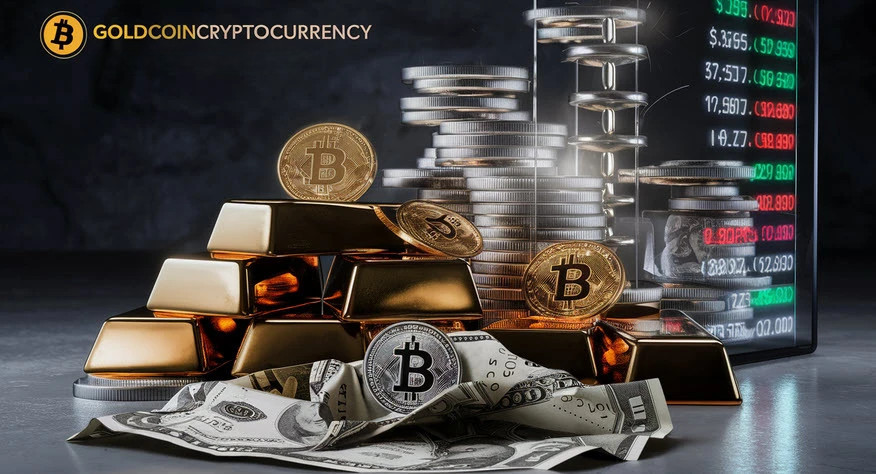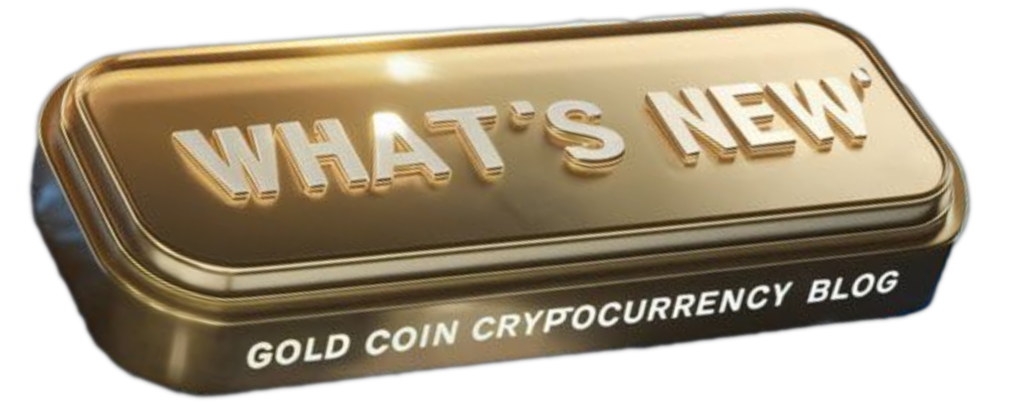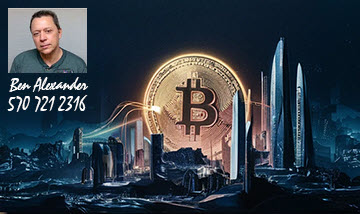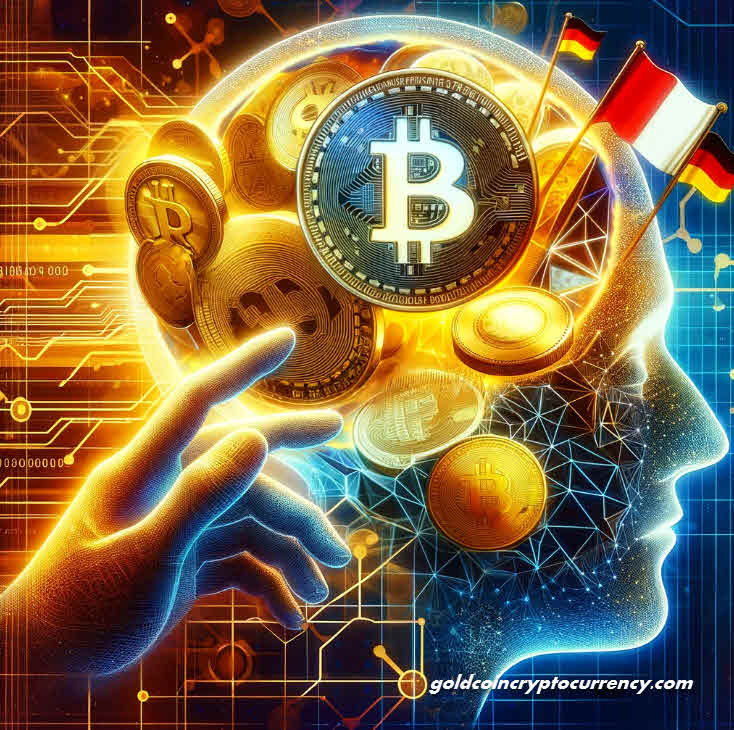
The intersection of gold, cryptocurrency, and politics might seem unlikely at first glance. However, these seemingly disparate elements are increasingly intertwined in our modern financial and political landscape.
As traditional stores of value like gold coexist with emerging digital assets, and as blockchain technology influences political processes, we’re witnessing a unique convergence of old and new. This blog will explore the complex relationships between these forces and their potential impact on our economic and political systems.
We’ll examine how traditional assets like gold are adapting to a digital age, the role of cryptocurrencies in modern finance, and the ways in which blockchain technology might reshape political power structures. By analyzing these topics objectively, we aim to provide insight into the evolving nature of value, money, and governance in our increasingly digital world.
Join us as we navigate this complex terrain, separating fact from fiction and exploring the real-world implications of these interconnected forces.
Gold: Shiny Savior or Stone Age Relic?
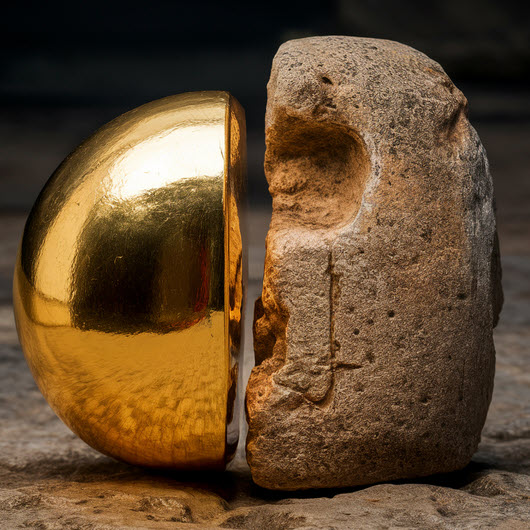
Gold: Timeless Asset or Outdated Relic?
Gold has fascinated humanity for thousands of years. From ancient Egyptian tombs to modern investment portfolios, its allure endures. But in our rapidly evolving digital economy, it’s worth asking: does gold still have a place?
Opinions on gold’s relevance are divided. Some investors view it as a reliable hedge against inflation and economic uncertainty. They argue that gold’s physical nature and limited supply make it a stable store of value in turbulent times.
On the other hand, critics point to gold’s lack of practical utility and its vulnerability to market speculation. They question whether this ancient asset can keep pace with modern financial instruments and digital currencies.
So where does the truth lie? Is gold a dependable safeguard or an outdated relic? Let’s explore the pros and cons of gold in today’s economy, examining its role as both a traditional asset and a potential counterbalance to newer forms of wealth.
As we dive into this topic, we’ll consider how gold fits into diverse investment strategies and what its enduring appeal might tell us about our relationship with value and security in an increasingly digital world.
Crypto Craze: Diamonds in the Rough or Silicon Snake Oil?
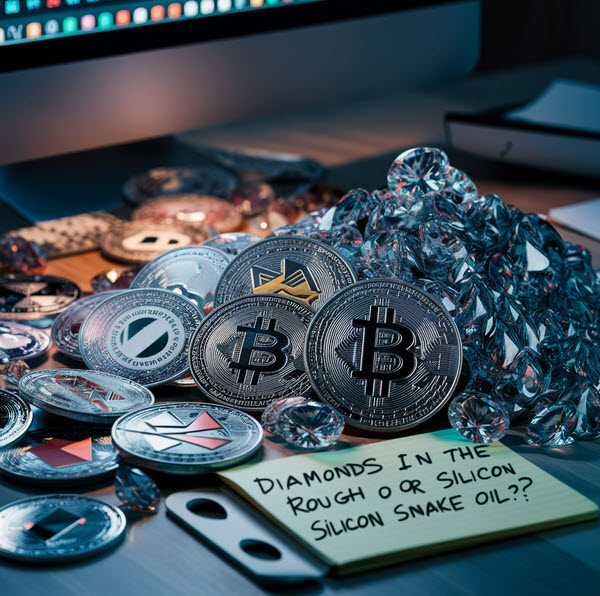
Cryptocurrency: Innovation or Speculation?
Cryptocurrencies have emerged as a significant talking point in modern finance. These digital assets have sparked intense debate about the future of money and financial systems.
Proponents view cryptocurrencies as a revolutionary technology with the potential to democratize finance. They argue that crypto offers increased financial privacy, lower transaction costs, and freedom from traditional banking systems. Some see it as a hedge against inflation or a means to participate in a new digital economy.
Critics, however, raise concerns about cryptocurrency’s volatility, environmental impact, and potential for facilitating illegal activities. They question whether crypto can truly fulfill its promises of security and decentralization, and worry about the lack of consumer protections in this largely unregulated space.
The reality likely lies somewhere between these extremes. While cryptocurrencies have shown potential to innovate in areas like cross-border payments and decentralized finance, they also face significant challenges in terms of scalability, regulation, and mainstream adoption.
As we explore this topic, we’ll examine the technology behind cryptocurrencies, their current applications, and the hurdles they face. We’ll also consider how they might coexist with or challenge traditional financial systems, and what this could mean for the future of money and investment.
By looking at both the opportunities and risks associated with cryptocurrencies, we aim to provide a balanced view of this complex and rapidly evolving field.
Political Chess: Crypto vs. Kings, Gold vs. Governments
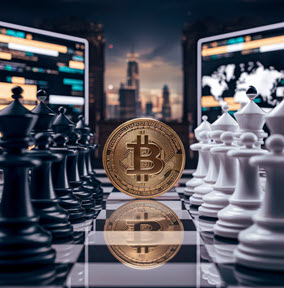
The Interplay of Politics, Gold, and Cryptocurrency
The relationship between politics, traditional assets like gold, and emerging cryptocurrencies is complex and evolving. This intersection raises important questions about financial regulation, monetary policy, and the balance of power between governments and individuals.
Governments and central banks have long influenced the value and use of gold, often seeing it as a strategic asset. Now, they’re grappling with the rise of cryptocurrencies, which challenge traditional notions of monetary control. Some countries have embraced crypto, while others have imposed restrictions or bans.
Cryptocurrencies offer the potential for greater financial autonomy, which appeals to those seeking alternatives to government-controlled currencies. However, this same feature raises concerns among regulators about financial stability, tax evasion, and illicit activities.
Meanwhile, gold continues to play a role in geopolitics, with countries like China and Russia increasing their reserves, potentially as a hedge against economic sanctions or dollar dominance.
As we explore this topic, we’ll examine how political decisions impact the value and adoption of both gold and cryptocurrencies. We’ll look at regulatory approaches around the world, the potential for central bank digital currencies, and how these factors might shape the future of global finance.
We’ll also consider the broader implications for individual financial freedom, national sovereignty, and the changing nature of money in a digital age. By analyzing these complex interactions, we aim to provide insight into how politics, gold, and crypto are shaping our economic landscape.
My Thoughts: Stirring the Pot
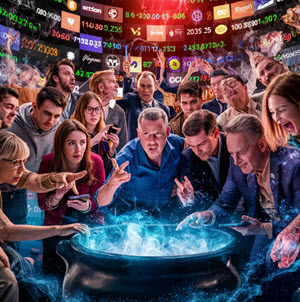
After diving into these topics, I’ve come to see the interplay of gold, cryptocurrency, and politics as a mirror of our rapidly changing world. It’s not just about investment strategies or technological innovation – it’s about how we perceive value, trust, and power in an increasingly digital age.
The enduring appeal of gold, despite (or perhaps because of) its ancient roots, speaks to our desire for stability in uncertain times. It’s a tangible link to history, a constant in a world of flux.
Cryptocurrencies, on the other hand, represent our drive for innovation and, for some, a yearning for financial autonomy. They challenge us to rethink fundamental concepts like money and value.
The political dimension adds another layer of complexity. It reminds us that financial systems are deeply intertwined with governance and power structures. The tensions between centralization and decentralization, regulation and freedom, play out in real-time as governments grapple with these new realities.
As I’ve explored these topics, I’ve found myself questioning my own assumptions about money, investment, and the role of government in finance. I believe these discussions are valuable not just for investors or tech enthusiasts, but for anyone interested in understanding the forces shaping our economic future.
What do you think? How do you see the relationship between traditional assets like gold, emerging technologies like crypto, and the political landscape? I’d be curious to hear your thoughts and experiences navigating this complex terrain.
The Bottom Line: Keeping an Open Mind
In Conclusion: A Changing Financial Landscape
The interplay between gold, cryptocurrency, and politics reflects our evolving perceptions of value and trust in a digital age. Gold represents stability and tradition, while cryptocurrencies embody innovation and the desire for financial autonomy. The political aspect reminds us that financial systems are inseparable from governance structures.
These discussions go beyond investment strategies – they touch on fundamental questions about the nature of money, power, and individual freedom in our modern world. As we navigate this changing landscape, it’s important to stay informed and think critically about how these forces might shape our economic future.
What are your thoughts on how these elements interact? How do you see them influencing our financial world in the future?
P.S. We have a strict “no negativity” policy here. So, keep the ads and hate speech at bay, and let’s focus on good, old-fashioned intellectual sparring!
Author: Ben Alexander
Gold and Cryptocurrency Fan. I started trading with penny stocks and
futures before any data was available online. What a difference today!
- Peter Schiff August 2024
- Presidential Election 2024 And Bitcoin Price News Highlights
- Fed Insider Warning – All Hell Is About To Break Loose
- George Gammon Banking Crisis Summary: Why Banks Are Facing Failure
- Is Bing Anti-Crypto and Anti-Financial Freedom?
